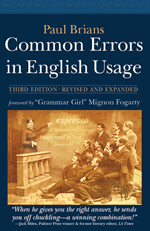“Channel-surfing” developed as an ironic term to denote the very unathletic activity of randomly changing channels on a television set with a remote control. Its only similarity to surfboarding on real surf has to do with the esthetic of “going with the flow.” The Internet could be a fearsomely difficult place to navigate until the World Wide Web was invented; casual clicking on Web links was naturally quickly compared to channel-surfing, so the expression “surfing the Web” was a natural extension of the earlier expression. But the Web is only one aspect of the Internet, and you label yourself as terminally uncool if you say “surfing the Internet.” (Cool people say “Net” anyway.) It makes no sense to refer to targeted, purposeful searches for information as “surfing”; for that reason I call my classes on Internet research techniques “scuba-diving the Internet.”
However, Jean Armour Polly, who claims to have originated the phrase “surfing the Internet” in 1992, maintains that she intended it to have exactly the connotations it now has.
BUY THE BOOK!
